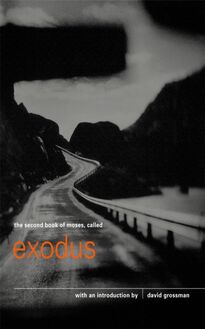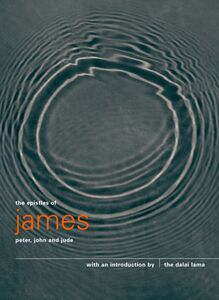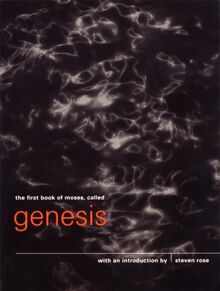-
 Univers
Univers
-
 Ebooks
Ebooks
-
 Livres audio
Livres audio
-
 Presse
Presse
-
 Podcasts
Podcasts
-
 BD
BD
-
 Documents
Documents
-
- Cours
- Révisions
- Ressources pédagogiques
- Sciences de l’éducation
- Manuels scolaires
- Langues
- Travaux de classe
- Annales de BEP
- Etudes supérieures
- Maternelle et primaire
- Fiches de lecture
- Orientation scolaire
- Méthodologie
- Corrigés de devoir
- Annales d’examens et concours
- Annales du bac
- Annales du brevet
- Rapports de stage
La lecture à portée de main
Vous pourrez modifier la taille du texte de cet ouvrage
Découvre YouScribe en t'inscrivant gratuitement
Je m'inscrisDécouvre YouScribe en t'inscrivant gratuitement
Je m'inscrisEn savoir plus
Vous pourrez modifier la taille du texte de cet ouvrage
En savoir plus

Description
Sujets
Informations
| Publié par | Canongate Books |
| Date de parution | 01 janvier 1999 |
| Nombre de lectures | 0 |
| EAN13 | 9780857861078 |
| Langue | English |
Informations légales : prix de location à la page 0,0050€. Cette information est donnée uniquement à titre indicatif conformément à la législation en vigueur.
Extrait
Contents
Title Page a note about pocket canons introduction by p d james the acts of the apostles 2 3 4 5 6 7 8 9 10 11 12 13 14 15 16 17 18 19 20 21 22 23 24 25 26 27 28 Copyright
a note about pocket canons
The Authorised King James Version of the Bible, translated between 1603–11, coincided with an extraordinary flowering of English literature. This version, more than any other, and possibly more than any other work in history, has had an influence in shaping the language we speak and write today.
Twenty-four of the eighty original books of the King James Bible are brought to you in this series. They encompass categories as diverse as history, philosophy, law, poetry and fiction. Each Pocket Canon also has its own introduction, specially commissioned from an impressive range of writers, to provide a personal interpretation of the text and explore its contemporary relevance.
introduction by p d james
P.D. James has won many awards for crime-writing from Britain, America, Italy and Scandinavia, and has received honorary degrees from six universities. In 1983 she received the OBE and in 1991 she was created a life peer. Her novels include An Unsuitable Job for a Woman, Innocent Blood, Shroud for a Nightingale, A Taste for Death, The Children of Men, Original Sin and A Certain Justice. She lives in London.
No book of the New Testament has a plainer and less ambiguous title than has the fifth, The Acts of the Apostles , but it is hardly an accurate description of this complex, fascinating and occasionally puzzling testimony in which the majority of the Apostles are only briefly named. To read Acts is to be drawn into a world of dramatic incident thronged with characters from all walks of life, a world of many nations and tongues; Parthians and Medes, Elamites, Cretes and Arabians, some of whom briefly appear and then as mysteriously disappear. This personal account of the formative years of the Christian Church is dominated by two very different characters, both of immense stature and importance: Peter, the rock on which Christ said He would build His Church, and Paul of Tarsus, the religious genius who, following his dramatic conversion, carried the new faith to the Gentile world and formulated its theology.
The story opens with the command of Jesus that His disciples should wait in Jerusalem for the promised baptism with the Holy Ghost, after which they would be empowered to be witnesses to Him, ‘both in Jerusalem and in all Judaea, and in Samaria, and unto the uttermost part of the earth’ (1:8). By the end of the book we have seen this promise fulfilled. By the power of the Holy Spirit the faith has spread like sparks from a fire, leaping from community to community through the Mediterranean world until it reaches the gates of Rome itself.
From the end of the second century the tradition of the Church has ascribed authorship of Acts to Luke, who wrote the first gospel. Both works are dedicated to Theophilus. The style and vocabulary of both are consistent with the same authorship and it would seem that the two books were intended to be read as one narrative. Luke is mentioned only three times in the New Testament, all in the letters of Paul. In Colossians 4:14 he writes: ‘Luke, the beloved physician, and Demas, greet you’. When writing to Philemon he refers to Luke as one of his fellow workers, and in the fourth chapter of the second letter to Timothy, he writes: ‘Only Luke is with me’(4:11). It does seem likely that Luke accompanied Paul on some of his journeys, particularly since sections in the second half of the book changed from the third-person to the first-person narrative, and are obviously a personal account. But it is extraordinary that we know so little of the man who, through his writing, was so influential in the life of the Church.
We know even less of the dedicatee Theophilus. Luke, in his gospel, gave him the title ‘Excellency’. Was he a provincial governor or other powerful man drawn to the new religion but waiting to be convinced of its truth before accepting baptism? Was he even a real person? But he certainly stands for the very many people whom Luke was addressing and seeking to convince and convert by this extraordinary, richly-populated and complex mixture of religious apologia, adventure story and travelogue. Acts was probably written about 60 AD , although some authorities date it twenty years later. If 60 AD is roughly correct, then Luke may well have spoken to witnesses who actually met Jesus during His ministry.
The most dramatic and arguably the most important episode in Acts , apart from Christ’s ascension and the coming of the Holy Spirit, is the conversion of Paul, then called Saul. He was an indefatigable persecutor of the Way and had been present at the stoning to death of Stephen, the first martyr. Now ‘breathing out threatenings and slaughter against the disciples of the Lord’(9:1), he obtained from the high priest letters to the synagogue at Damascus authorising him to bring in men or women followers of the Way bound for Jerusalem.
While he was on the road and coming close to Damascus, there was a sudden light from Heaven shining around him. He fell to the ground and heard a voice saying: ‘Saul, Saul, why persecutest thou me?’ Trembling and astonished he asked, ‘Lord, what wilt thou have me to do?(9:6)’ He was told to rise and go into the city and there wait to be told what would happen next. The men who were journeying with him stood speechless with amazement, hearing a voice but seeing no-one. When Saul got up from the earth he was blind and his companions had to lead him by the hand and take him into Damascus. There, after three days without sight and without food or drink, the disciple named Ananias came to him, restored his sight, confirmed to him that the Lord had indeed appeared to him on the way, and baptised him. In that extraordinary moment of revelation on the Damascus road Paul’s life was irrevocably changed and the history of the Western world was set on a different course.
It would not, of course, be accurate to think of Paul’s conversion in our present sense of the word; he did not abjure his old religion. He and the disciples remained Jews and, when they worshipped, did so in the synagogue. And when they preached the message of Christ crucified and risen, they could not possibly have envisioned that this new religion would spread to lands then undiscovered, or that Jesus of Nazareth would still be worshipped two thousand years after their deaths. They must, indeed, have been in expectation of Christ’s early Second Coming.
No organisation with which human beings are concerned, even one divinely ordained or inspired, is ever free from controversy. The main problem facing the new Church was whether Christ’s revelation was to the Jews alone or whether Gentiles could also receive the gift of the Spirit and be baptised. The decision, like many others, was preceded by a divine revelation following prayer. Peter, who was at Joppa, went up on the roof to pray. He was hungry and, while food was being prepared, he fell into a trance. He saw Heaven opening and a great sheet, knotted by its four corners, descend and ascend three times, containing all manner of ‘four-footed beasts of the earth, and wild beasts, and creeping things, and fowls of the air’(10:12). Peter heard a voice saying: ‘Rise, Peter; kill and eat’, but he replied, ‘Not so, Lord, for I have never eaten any thing that is common or unclean.’ Then the voice spoke to him again: ‘What God has cleansed, that call not thou common’(10:13-15). Peter perceived that God is no respecter of persons; the new dispensation of love was to be taken to the whole world.
Inevitably this decision gave rise to further dissension; was it necessary for converts who were not Jews to be circumcised before they were received into the Church? It was decided that the Gentiles must be required to keep the Jewish dietary rules and abstain from fornication, but that they need not be circumcised. The decision was certainly not unanimous and was probably more controversial than Luke admits. It was, however, one more vital step on the journey of Christianity towards world acceptance.
Another decision which caused difficulty arose from the practice of the Church that possessions should be held in common and that distribution should be made according to need. A certain man named Ananias (the second of that name in Acts ), with Sapphira his wife, sold their possessions, as they were required to do, but kept back part of the price. When Ananais laid the remainder at the apostles’ feet, Peter asked Ananias: ‘Why has Satan filled thine heart to lie to the Holy Ghost and to keep back part of the price of the land?(5:3)’ On hearing Peter’s words, Ananias fell down dead. About three hours later, his wife, not knowing what had happened, came in and received the same question from Peter. She too fell down dead at his feet and was carried out. ‘And great fear came upon all the church, and upon as many as heard these things’(5:11). I have always found this a disturbing story and can’t help feeling some sympathy for Ananias and his wife. They probably felt it was prudent and not unreasonable, having sold all their possessions, to retain at least part of the proceeds; their punishment – since that is how it is presented in Acts – seems more typical of a vengeful Jehovah than of the God of love and forgiveness.
Acts is a restless book, full of comings and going, of dramatic incidents and violent events. We accompany Paul on his three great perilous journeys, but he is not the only traveller; almost all the characters are on the road, healing, raising the dead, preaching, defending themselves before the councils of the great, both in state and synagogue. Luke observes the dramatic events with the eye of a physician and describes them with
-
 Univers
Univers
-
 Ebooks
Ebooks
-
 Livres audio
Livres audio
-
 Presse
Presse
-
 Podcasts
Podcasts
-
 BD
BD
-
 Documents
Documents
-
Jeunesse
-
Littérature
-
Ressources professionnelles
-
Santé et bien-être
-
Savoirs
-
Education
-
Loisirs et hobbies
-
Art, musique et cinéma
-
Actualité et débat de société
-
Jeunesse
-
Littérature
-
Ressources professionnelles
-
Santé et bien-être
-
Savoirs
-
Education
-
Loisirs et hobbies
-
Art, musique et cinéma
-
Actualité et débat de société
-
Actualités
-
Lifestyle
-
Presse jeunesse
-
Presse professionnelle
-
Pratique
-
Presse sportive
-
Presse internationale
-
Culture & Médias
-
Action et Aventures
-
Science-fiction et Fantasy
-
Société
-
Jeunesse
-
Littérature
-
Ressources professionnelles
-
Santé et bien-être
-
Savoirs
-
Education
-
Loisirs et hobbies
-
Art, musique et cinéma
-
Actualité et débat de société
- Cours
- Révisions
- Ressources pédagogiques
- Sciences de l’éducation
- Manuels scolaires
- Langues
- Travaux de classe
- Annales de BEP
- Etudes supérieures
- Maternelle et primaire
- Fiches de lecture
- Orientation scolaire
- Méthodologie
- Corrigés de devoir
- Annales d’examens et concours
- Annales du bac
- Annales du brevet
- Rapports de stage




















